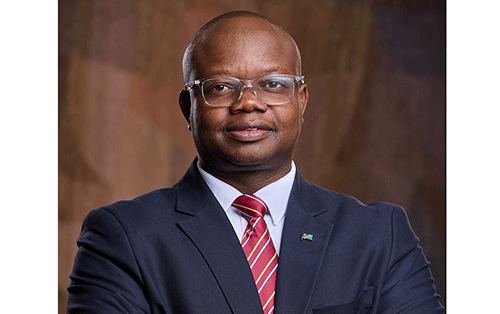Recently, the Bank of Namibia, as the country’s central bank responsible for safeguarding the stability and integrity of the financial system, has been at the forefront of identifying a troubling surge in fraudulent investment schemes.
These schemes, which falsely promise financial support for Namibia’s development initiatives, have been targeting high-ranking government officials, ministries, traditional leaders, and prominent public figures, exploiting their reputations to give credibility to deceptive offers.
Alarmingly, religious and traditional leaders who might not always have the means of verifying the authenticity of information are also being approached to advance these schemes within their communities, leveraging their influence.
The international actors behind these schemes often present enticing opportunities, such as billions of dollars in humanitarian funding. They misrepresent themselves and use the names of government offices, ministries, and agencies to entrap unsuspecting individuals and institutions in illicit activities. These offers appear particularly alluring in vulnerable communities, leading religious leaders and now traditional leaders, to desperately invest the little they have collected from their congregations and communities. In their pursuit of deceit, the fraudsters claim to have access to vast sums of money, often valued in millions or billions of US dollars or euros. They present these funds as investments to finance Namibia’s economic development and mega-construction projects.
They use falsified documents, including forged SWIFT transfers or Money Order payment confirmations, to make their scams appear legitimate. These tactics are designed to deceive individuals into engaging in these illicit activities.
Additionally, these criminals apply pressure by falsely claiming that local commercial banks withhold the funds and requesting intervention from the Bank of Namibia to release these non-existent funds. Some even go as far as requesting victims to open bank accounts to receive these fake investments. They misuse the central bank’s name to create the false perception that it is blocking their funds, without victims understanding the central bank’s role as a banker only to the government and not the public.
Extensive investigations by the Bank of Namibia have confirmed that these supposed SWIFT transfers or money order payments do not exist and are fictitious. All documents presented by unsuspecting Namibian nationals are fraudulent, often riddled with typographical errors, inconsistencies, and logos sourced from questionable origins.
These warning signs indicate that the investment offers are scams to exploit unsuspecting individuals.
Another fraudulent scheme uncovered through the BoN’s investigations falsely presented itself as a holder of significant investment funds and targeted Namibian authorities, including traditional leaders, through a local firm. They attempted to use false financial instruments, including International Bills of Exchange and Promissory Notes, to deceive the Namibian government into accepting or endorsing these non-existent investments.
The Bank of Namibia strongly urges the public to remain vigilant and report suspicious investment schemes. If approached by individuals claiming to offer large-scale funding for Namibia’s development or community projects, especially when unsolicited documents or promises of extraordinary financial returns are involved, verifying the offer’s authenticity with relevant authorities before proceeding is critical.
The consequences of falling victim to these fraudulent schemes can be severe, including financial loss and damage to one’s reputation. Namibia welcomes and encourages legitimate foreign direct investment but will not tolerate the misuse of its financial system for fraudulent purposes.
*Kazembire Zemburuka is the spokesperson for the Bank of Namibia.


